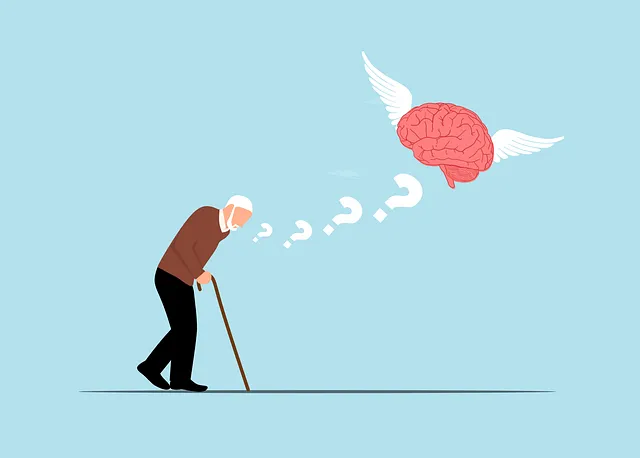Kaiser Permanente's mental health services in Aurora prioritize emotional regulation through the RFM (Resilience, Flexibility, Mastery) model, combining cognitive behavioral therapy and mindfulness. This approach enhances coping mechanisms and self-efficacy, helping individuals adapt to stress and manage emotions. The holistic Aurora Model, with its four core pillars, promotes resilience as a tool for excelling in challenges, fostering flexible thinking and nurturing relationships. Personalized Resilience Building Exercises (RBEs), integrated into comprehensive treatment plans, create supportive environments for emotional healing and positive thinking. Success is measured through robust evaluation methods, tracking symptoms reduction and quality of life improvements, with regular assessments ensuring tailored programs aligned with individual needs.
“Discover how Resilience-Focused Mental Health Support can transform patient care, as exemplified by industry leader Kaiser Permanente. This article delves into the powerful tool of RFM (Resilience Factor Model) and its role in fostering mental well-being. We explore Kaiser’s innovative approach to integrating RFM into routine care and introduce the Aurora Model—a structured framework for building resilience. Additionally, we provide practical guidance on implementing Resilience Building Exercises (RBEs) and offer metrics for tracking success. Learn from the Aurora experience to enhance mental health outcomes.”
- Understanding RFM and Its Role in Mental Health Support
- Kaiser Permanente's Approach to Integrating RFM into Care
- The Aurora Model: A Resilient Mindset Framework
- Implementing Resilience Building Exercises (RBEs) Effectively
- Measuring Success: Tracking Improvement and Outcomes
Understanding RFM and Its Role in Mental Health Support

At Kaiser Permanente mental health services in Aurora, we recognize that building resilience is a cornerstone of effective therapy. RFM (Resilience, Flexibility, and Mastery) models have emerged as powerful tools to help individuals navigate life’s challenges with greater ease. This approach focuses on fostering emotional regulation, a key aspect of mental well-being. By integrating techniques from cognitive behavioral therapy and mindfulness practices, professionals guide clients towards enhancing their coping mechanisms and developing a stronger sense of self-efficacy.
Understanding RFM involves recognizing its role in risk management planning for mental health professionals. Through structured exercises, individuals learn to adapt to stressful situations, manage their emotional responses, and regain a sense of control. This proactive approach not only improves overall mental health but also boosts confidence, enabling folks to face life’s uncertainties with resilience and optimism.
Kaiser Permanente's Approach to Integrating RFM into Care

Kaiser Permanente has embraced a holistic approach to integrating RFM (Recovery, Resilience, and Mental Health) into their care model, focusing on the emotional well-being promotion techniques tailored to their community in Aurora. This initiative underscores their commitment to fostering mental wellness among their members. By incorporating practices such as mental wellness journaling exercise guidance, they empower individuals to track and enhance their resilience.
The organization has developed comprehensive mental wellness coaching programs that provide personalized support, encouraging patients to cultivate coping strategies for stress and adversity. Through these initiatives, Kaiser Permanente aims to create a supportive environment, ensuring that mental health becomes an integral part of overall well-being. This strategy not only promotes individual healing but also contributes to building a stronger, more resilient community in the Aurora region.
The Aurora Model: A Resilient Mindset Framework

The Aurora Model offers a compelling framework for cultivating resilience and fostering a resilient mindset, particularly within the context of mental health initiatives like those provided by Kaiser Permanente. This model is inspired by the understanding that building resilience isn’t just about coping with challenges but also about thriving in adversity. By focusing on four key pillars—Adaptability, Resourcefulness, Mastery, and Connection—the Aurora Model provides a holistic approach to mental well-being.
Adaptability equips individuals with flexible thinking and problem-solving skills, enabling them to navigate life’s twists and turns effectively. Resourcefulness encourages the identification and utilization of inner strengths and external supports for anxiety relief and confidence boosting. Mastery involves developing a sense of competence and control over one’s thoughts and actions, fostering self-efficacy and resilience against stress. Lastly, Connection emphasizes the importance of building and nurturing relationships as a crucial component of compassion cultivation practices, highlighting that supportive connections are vital for overall mental health.
Implementing Resilience Building Exercises (RBEs) Effectively

Implementing Resilience Building Exercises (RBEs) effectively requires a strategic approach that aligns with the unique needs and backgrounds of individuals engaged in mental healthcare services, such as those sought by Kaiser Permanente members in Aurora. RBEs are not one-size-fits-all; they must be tailored to foster emotional healing processes and cultivate positive thinking while considering cultural sensitivity in mental healthcare practice. This involves recognizing and respecting diverse perspectives, beliefs, and experiences, ensuring that exercises resonate with participants and promote genuine engagement.
To maximize the impact of RBEs, mental health professionals should integrate them into comprehensive treatment plans, tailoring activities to individual preferences and progress. By creating a safe, supportive environment where folks feel empowered to explore their emotions and strengths, these exercises can become transformative experiences, helping individuals build resilience and navigate life’s challenges with renewed confidence.
Measuring Success: Tracking Improvement and Outcomes

Measuring success is a critical component when implementing resilience-building exercises, especially considering the long-term goals of mental health initiatives like those offered by Kaiser Permanente in Aurora. Tracking improvement and outcomes provides valuable insights into the effectiveness of these programs. By utilizing robust evaluation methods, professionals can assess changes in participants’ mental wellness over time. This involves collecting data on various metrics such as reduced symptoms of anxiety and depression, enhanced coping mechanisms, and improved overall quality of life.
The Mental Wellness Podcast Series Production team at Kaiser Permanente has recognized the importance of these measures. They employ regular assessments and surveys to gauge participant progress, ensuring that the exercises are tailored to meet individual needs. This data-driven approach allows for continuous improvement in the resilience-building programs, aligning with the ultimate goal of fostering a more resilient and healthy community.
Resilience is a powerful tool in navigating life’s challenges, and organizations like Kaiser Permanente are leading the way in integrating this concept through RFM and Resilience Building Exercises (RBEs). By adopting frameworks like The Aurora Model, healthcare providers can foster a culture of mental well-being, empowering individuals to build resilience. This holistic approach, as demonstrated by Kaiser Permanente’s success, has the potential to revolutionize support systems, ensuring better outcomes for those seeking mental health assistance. The Aurora model, with its focus on fostering resilient mindsets, offers a promising strategy for enhancing overall well-being, especially in today’s fast-paced world.






